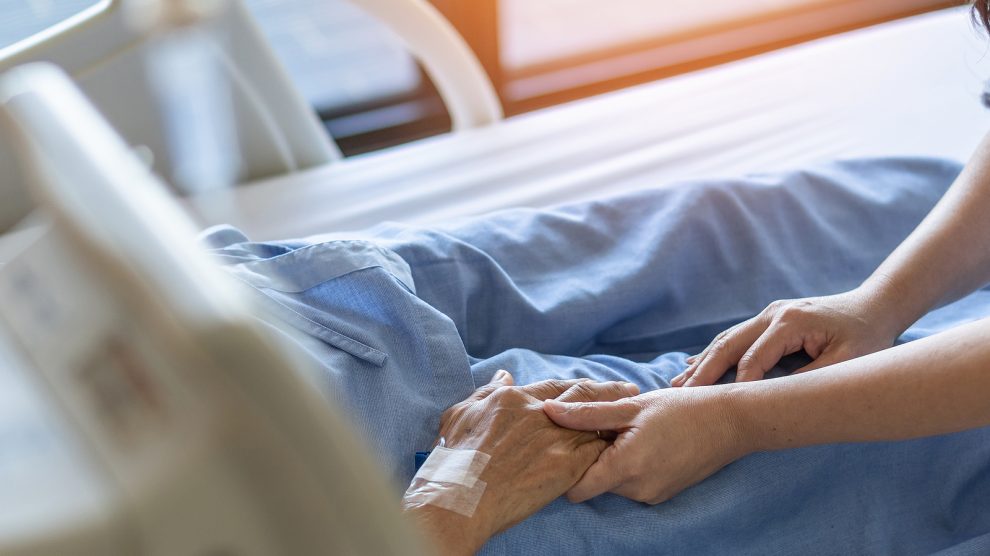Investing today in primary health care will translate into raising the quality of life for the global population tomorrow.
According to the World Health Organisation (WHO), primary health care (PHC) addresses most people’s health needs throughout their lifetime, including physical, mental, and social well-being.
- Better public-private cooperation must be the lesson learnt from Covid-19
- Not using AI in healthcare will soon be malpractice
- Warsaw Health Innovation Hub set make a ‘Polish Medical Valley’ a reality
This means that already by definition it is more people-centred rather than disease-centred and should work as the first point of contact with the health system.
Although this seems obvious and the discussion has been live for a long time, in many markets of emerging Europe it is still an area that is not treated appropriately in view of its importance to the state and society.
As we have seen over the past several months, this has been verified by Covid-19, which has uncovered existing shortcomings in relation to PHC. The pandemic simply made them more visible and helped governments realise the critical role of essential care at the same time.
PHC and the health care services continuum
The main role of primary health care is to provide continuous and high-quality comprehensive care to patients.
It offers the first set of professional care to communities using the measures and tools of health promotion, education, disease prevention, treatment, rehabilitation, and palliative care.
Its condition is therefore of great importance not only at the local level but for the healthcare system as a whole.
Good management and well trained teams make PHC more efficient, alleviating hospital work by reducing unnecessary numbers of patients and non-patients and cutting the rates of emergency department visits. For example, in 2016 hospital admissions for chronic conditions were equivalent to 5.8 per cent of hospital bed days across 30 OECD countries, which could have been avoided by delivering high-quality PHC.
During consecutive waves of Covid-19, we saw that hospitals, also in Eastern European countries, were not always treated as the last link in the chain, which has led to overcrowding, making it even more difficult to manage emergencies.
Pushing care delivery straight to hospitals has been caused by a lack of information and/or essential procedures in the view of which the whole process should be rethought in a way as to ensure best decision and situation management support in a very short time.
This, in turn, indicates how important it is for national health systems to have an extensive primary health care network that does not disrupt irreplaceable hospital services like surgeries, oncology or maternity services (deliveries) and reduces the overall cost of treatment.
We can thus see that continued investment in PHC and its development are necessary to ensure, especially in times of crisis such as Covid-19, that communities have adequate access to care and that hospitals continue to operate and manage critical health issues.
Primary health care is crucial in making health systems more resilient and prepared to such crisis situations, as it plays the key role in detecting early signs of epidemics, and then in acting and responding to them.
Efficiency comes with training
In addition to knowledge and expertise in many clinical areas, in order to be able to administer appropriate treatment or refer a patient to a specific specialist or therapy, GPs and staff of PHC centres also need a mix of diverse skills, like the ability to cooperate with others, to use new digital tools to bring the greatest benefit and care to patients and even to be efficient communicators and pass the right health related messages at the community level – crucial in critical situations as we have witnessed with Covid-19.
Training, therefore, is another area to take into consideration.
Development programmes aimed at PHC teams are already being introduced in some European countries in areas like health promotion, education, and disease prevention. To be able to efficiently manage the whole health system, more governments should also consider investing in similar solutions in the near future.
Moreover, modern technologies, including telemedicine, e-prescriptions, or electronic health records (EHC), have been deployed in medicine over the past several months faster than ever.
Therefore it is now crucial to help PHC teams to take advantage of these tools and train them how to use these resources, which not only improve the general workflow but in particular increase the accuracy of diagnosis and enhance the patient experience.
The long-term perspective
What we certainly learnt from the Covid-19 pandemic is that PHC is irreplaceable in confronting the crisis and shielding societies.
However, this will not succeed if the foundation of the healthcare system remains under-resourced, both in terms of trained professionals and equipment. The right diagnosis is the cornerstone of medical decisions. Providing PHC teams with innovative tools and devices, such as point of care ultrasounds or mobile XR units will help meet patients’ clinical needs in an all-encompassing way while saving time and cost. Countries need to rethink their HC systems weaknesses, preparing and implementing a strategic long-term plan centered around PHC needs.
Investing today in primary health care will translate into raising the quality of life for the global population tomorrow.
Unlike many news and information platforms, Emerging Europe is free to read, and always will be. There is no paywall here. We are independent, not affiliated with nor representing any political party or business organisation. We want the very best for emerging Europe, nothing more, nothing less. Your support will help us continue to spread the word about this amazing region.
You can contribute here. Thank you.



